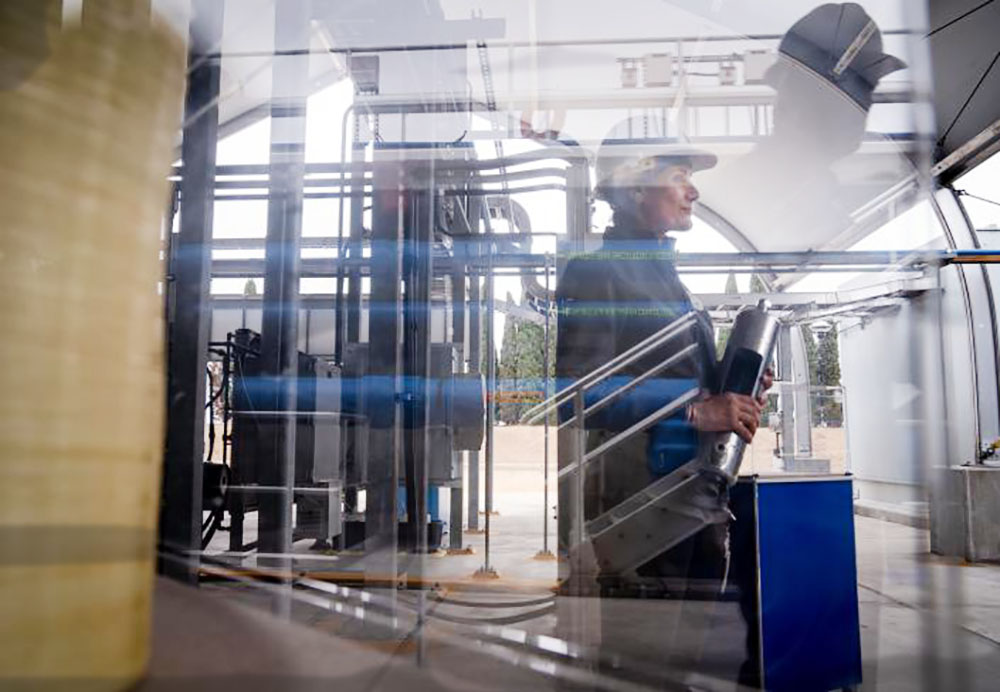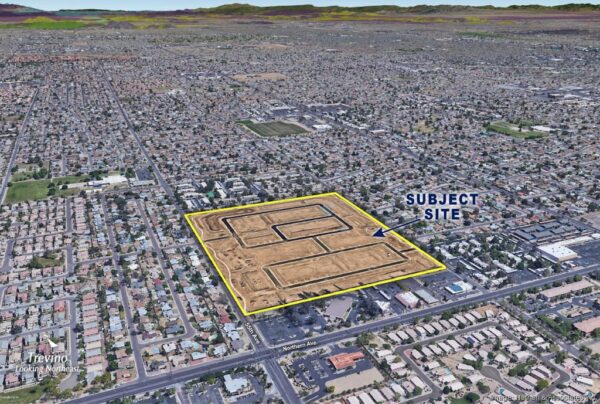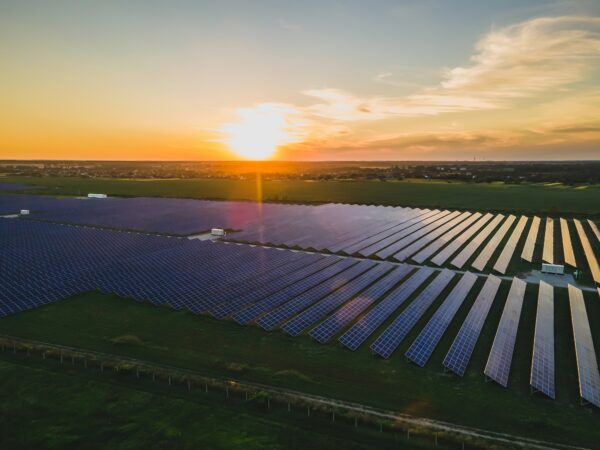Rupam Soni answers questions during a tour of the Regional Recycled Water Advanced Purification Center on May 19, 2022, in Carson, California. The facility employs a triple-treatment method to recycle water.
By Brandon Loomis || Arizona Republic
The ‘yuck’ factor once kept cities from recycling water, but better technology and a growing need for water could change attitudes.
The Southwest’s next source of water might be gurgling through the sewage pipes under this corner of Los Angeles County, an untapped stream in a Colorado River Basin that is otherwise tapped out.
Indirectly, Arizonans are poised to reap the benefits of a plan to recycle the last drops from a river that begins as Rocky Mountain snow but ends as treated wastewater dumped into the Pacific Ocean. The reclaimed water would equal what Tucson and Mesa together provide for more than a million people, and the state is banking on securing part of it for future needs.
“We’ve eventually got to get to a place where we can augment the water supplies of this state,” Arizona Water Resources Director Tom Buschatzke told The Arizona Republic when he was advocating for the creation of a $1 billion fund for that purpose.
State lawmakers obliged, and a Carson water-recycling plant could become an early investment from that fund. Water recycling joins desalination, conservation and dam construction as likely ways Arizona will try to wring more water out of its drought-stricken surroundings in coming years.
The Metropolitan Water District of Southern California is testing a unique triple-treatment system next to a Los Angeles County sewage treatment plant near the coast. Ultimately the water utility hopes to build a much larger plant that would enable trading of Colorado River water credits with Arizona and Nevada.
Unlike some existing recycling plants that dump water into the ground for further, natural filtration, this one would put it right back into the supply stream feeding city plants that turn raw canal water into drinking water. Previous efforts at recycling municipal wastewater into fresh drinking water have sometimes stalled out, including one direct reuse plant that Los Angeles built, said Rupam Soni, a community relations manager for Metropolitan.
“Back then there were some important projects that were quashed just because of the ‘yuck’ factor,” she said.
ing plant had been operating in Carson this year, for instance, Metropolitan would have needed all it could produce. That’s because the State Water Project, which delivers the region’s in-state supplies, was so dry after a poor snow and rain year.
Such shortages are sporadic in California, having come and gone several times since the Colorado River began its decline around 2000. In years of good local moisture, California won’t need the water that a Carson plant will produce. It’s in those years that Metropolitan can offer to leave some Colorado River water in Lake Mead for its partners.












